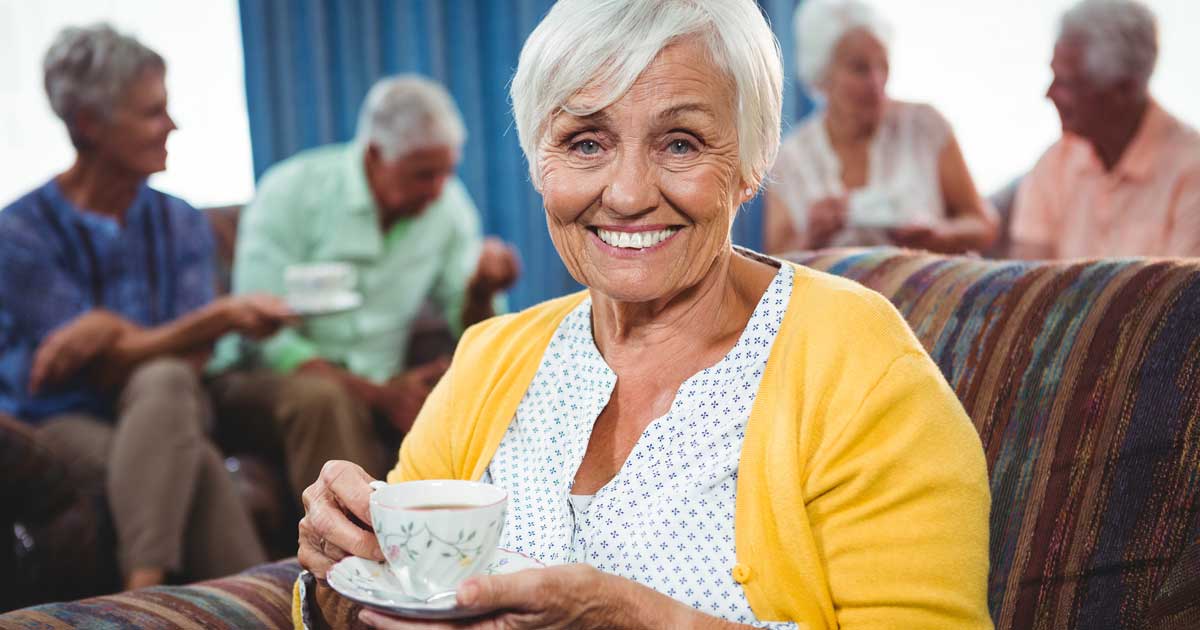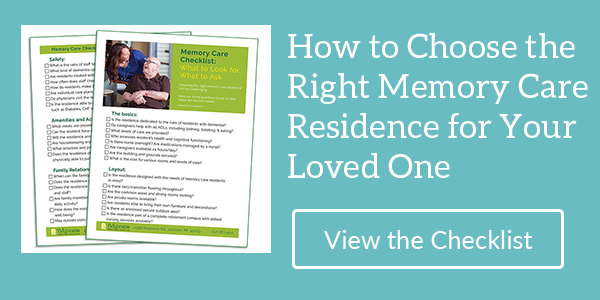As the coronavirus took hold in the United States, senior living communities ramped up preparations to protect their residents. In compliance with state and federal authorities, nursing homes, assisted living and long-term care facilities are now under lock-down orders nationwide. For many families and seniors, the separation is very difficult and often frustrating. But the truth is, in most cases, these facilities are actually the best and safest place for seniors who are among the most vulnerable in our population. So rather than be sad at the loss of contact, here are a few things to be happy about for family and friends in senior living communities.
Trained healthcare staff.
Most of us are rookies at the procedures now necessary to protect us from COVID-19, but healthcare workers are not. Aides and nurses are certified and/or licensed professionals and have completed college programs and degrees to be allowed to practice. And of course, physicians can have eight or more years of college under their belt and additional years of hands-on training to complete their specialties. These professionals are also highly experienced with real-world situations like the flu and norovirus outbreaks, which while not as lethal or virulent as the coronavirus, do wreak havoc among senior populations when left uncontrolled.
Today, these dedicated and compassionate people are risking their health and well-being so that our seniors have the best possible chance of surviving the pandemic. They are making personal sacrifices daily to be on the front lines and we owe them our respect and gratitude.
Expert cleaning crews.
Though not necessarily certified or licensed, the custodial people who continue to show up to work in our senior care facilities are no less heroes than the medical staff. They are going to extreme measures to follow the strict CDC COVID-19 guidelines now in place, and also put themselves at risk to ensure the cleanest possible environment for residents. Our seniors and their families are lucky to have such steadfast workers going above and beyond every day during this very difficult time.
Dependable supply chain – cupboards are well stocked!
Senior living communities stay ahead of the game by staying well-stocked and prepared for all kinds of emergencies year-round. Even before the coronavirus arrived, reputable U.S. senior facilities followed guidelines for emergency preparedness and hazard mitigation which in part includes making sure internal resources and supplies are plentiful and accessible. In so doing, facilities are able to limit vulnerability and are always prepared for the worst.
CDC recommendations are being followed.
Following the CDC’s recommendations is not just something that happens when a disaster or crisis strikes, it’s a constant commitment to care on many, many levels. From creating and structuring a disaster response plan, to establishing protocols for different scenarios, to making sure staff is available for all the different types of jobs at the facility, compliance is ongoing. During the pandemic this effort also includes infection control planning, isolation protocols and cleaning and disinfecting so that senior living communities are ready for any contingency. For a look at the planning required for a pandemic, check out the CDC’s “Long-term Care and Other Residential Facilities Pandemic Influenza Planning Checklist.”
Survival via isolation.
It’s no fun being isolated from family and friends, but as a means of survival, isolation is the perfect protocol, especially for seniors. Imagine a senior living at home, rather than in a senior community, who needs groceries, medications and other daily help. Someone must provide those items and run the risk of sharing the virus. Even more scary is a scenario where a senior at home has memory or other cognitive problems that make them unable to consistently understand the severity of the pandemic and the need to observe social distancing and personal hygiene recommendations. In a senior living community, the lockdown keeps them safely isolated from others while their daily needs – medicine, therapies, treatments, and meals — are automatically seen to by professional staff. No need to worry a loved one might wander away, miss a dose of medication or forget to eat in a senior living community.
Constant surveillance.
For those who live in states where stay-at-home orders are in place, it might become increasingly difficult to keep a watch over a loved one in their own home. In a senior living community, however, residents are under constant surveillance (that’s 24/7), have their temperatures taken regularly and have professional staff ready to act should the need arise. Family can sleep well at night knowing their loved one is safe and well-cared for even though they cannot be by their side.
As we face this unprecedented pandemic, it’s important to keep a positive perspective and a cool head, despite all the reasons to feel afraid and negative. One way to help care for residents in a senior living community is to observe all laws, rules and recommendations at home, when going out, and at the senior facility. Don’t forget as well to stay in touch with your senior via phone, text or video, and try to keep their spirits up while we look forward to the day when we can all come together again. Stay home, stay safe!
For information about Countryside, call Margaret Nagel at (517) 206-5000 or download our brochure to learn about our care levels, cost, and amenities.


